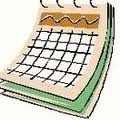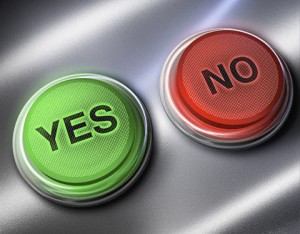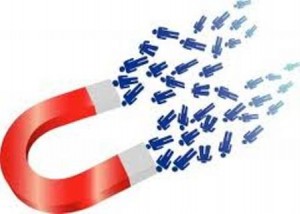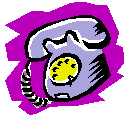Where Every Pharmacist Wants to Work
 Wouldn’t it be nice if instead of having to wait for applications when you post a new pharmacist position, that you would already have a network of qualified pharmacists you could call? Could you imagine all the time you would save from having to sift through those piles of resumes and applications?
Wouldn’t it be nice if instead of having to wait for applications when you post a new pharmacist position, that you would already have a network of qualified pharmacists you could call? Could you imagine all the time you would save from having to sift through those piles of resumes and applications?
Be known as the place pharmacists want to work.
When I share new pharmacist job opening with pharmacists, they often ask me where it’s at. And sometimes they’ll tell me right away “I wouldn’t want to work there because they (the pharmacy director) tell you you’d be working one kind of schedule when you interview, and then they make you work other schedules once you’re hired. It’s like bait and switch.” Or the pharmacist I talk to would tell me “I like everything about the job, but not the schedule.”
 The biggest complaint pharmacists share with me about why they leave jobs is because of the schedule. The most common issue is being tired of a variable schedule, because it makes it hard for a pharmacist to plan their personal life. It’s harder to plan taking fun classes, organize rides for kids related to school activities, and coordinate time to hang out with a significant other more. Not knowing their schedule far in advance is another issue.
The biggest complaint pharmacists share with me about why they leave jobs is because of the schedule. The most common issue is being tired of a variable schedule, because it makes it hard for a pharmacist to plan their personal life. It’s harder to plan taking fun classes, organize rides for kids related to school activities, and coordinate time to hang out with a significant other more. Not knowing their schedule far in advance is another issue.
Tip #1: If you can make your pharmacists’ schedules more consistent and give them access as much in advance as possible, you will be known as an employer who has desirable shifts for their pharmacists. You will attract good pharmacists who are good at what they do, but have trouble balancing their life with the rotating & variable shifts in their current job.
Action step to implement: Think about what you can do about the schedule. One hospital pharmacy director saw his retention rates go up significantly when he added a 7 on/7 off staff pharmacist evening shift. The 7 on/7 off evening shift covers the less popular shifts of evening shift & weekend shifts. Plus, his pharmacists love having 7 on/7 off schedule without having to work nights. Contemplate this idea to see if it would help with pharmacist satisfaction at your pharmacy.
Tip #2: Be known as the #1 place pharmacists work at if they want professional growth.
 Many pharmacists love the opportunity to grow professionally. This doesn’t mean just clinically, but to develop as a person. Find out what your pharmacists’ strengths are, and foster growth in that area. It is a very individualized plan—it could be related to pharmacy management, clinical projects, coming up with ideas to improve workflow, patient care, or reducing time it takes to dispense medication, etc. Allow them the autonomy of taking on one project at a time. They could be small projects but important ones. They could also be part of a team in your pharmacy that brainstorms & implements that project together.
Many pharmacists love the opportunity to grow professionally. This doesn’t mean just clinically, but to develop as a person. Find out what your pharmacists’ strengths are, and foster growth in that area. It is a very individualized plan—it could be related to pharmacy management, clinical projects, coming up with ideas to improve workflow, patient care, or reducing time it takes to dispense medication, etc. Allow them the autonomy of taking on one project at a time. They could be small projects but important ones. They could also be part of a team in your pharmacy that brainstorms & implements that project together.
If you take the time to do this with each of your pharmacists, chances are that you will have pharmacists who stay with you year after year. You develop a relationship with your team and they feel you really care about them. Pharmacists who feel cared for will less likely leave their jobs, even if what seems like a better opportunity comes up.
Even while doing everything to be the best place to work, you may sometimes find yourself having an important job opening you want filled with the right pharmacist as soon as possible. Fortunately, you are in a better position than a pharmacy that doesn’t have as strong reputation than you. But you may still not have enough connections with the most experienced pharmacists to fill your opening. Don’t worry, because there are experienced and qualified pharmacists you can open yourself up to. Find out your options.
Action step to implement to become the place where every pharmacist wants to work: In your next staff meeting, share what your vision is about them growing professionally. Hand out a worksheet for them to fill out that helps them identify and acknowledge their strengths & what they are interested in doing more of professionally. Also during your staff meeting, ask your staff think could be done better about your pharmacy. Pick out the top 3 initiatives to work on in the next quarter.
Never “Call Your Ex” When Hiring a Pharmacist
 I was interviewing a candidate last month and fell in love with this person. I could see myself really enjoying working with her and thought she would be outstanding for the role she was interviewing for. I was imagining how she would fit in with our company, how we could really use her savvy marketing skills that I could tell were very authentic. She had a natural ability to make you want to listen to her even when you hadn’t talked to her for very long. What a great possibility for a potential recruiter, I thought.
I was interviewing a candidate last month and fell in love with this person. I could see myself really enjoying working with her and thought she would be outstanding for the role she was interviewing for. I was imagining how she would fit in with our company, how we could really use her savvy marketing skills that I could tell were very authentic. She had a natural ability to make you want to listen to her even when you hadn’t talked to her for very long. What a great possibility for a potential recruiter, I thought.
But something didn’t feel right. Although she was enthusiastic about marketing, she didn’t seem that enthusiastic about our company. One example was that she didn’t grasp what our company did from our website. In fact, she was totally off. She didn’t put the two and two together that we help connect pharmacists with jobs. Red flag, red flag! I started to justify it in my head that maybe our website’s unclear. But I couldn’t bring myself to settle in that justification because every interviewee who’s looked at our website has understood what we do.
Yet I was tempted to call her back.
And when I still hadn’t found the right person a few weeks after that, I thought again about calling her back.
Have you experienced something similar when you’ve been in the process of hiring a pharmacist? It’s like wanting to call your ex—you have moments when you think maybe you were wrong about breaking up with someone. Time goes by and you wonder…maybe it wasn’t really that bad after all? It’s the same when you’re in that position where you really need to hire someone, but haven’t found the right person yet. When the workload gets backed up in the pharmacy, you may be tempted to call this person you liked & question whether your judgment was right the first time. You get tempted…
 My honest assessment of her was that she would have been fantastic in the role I was looking for. But I didn’t think she had a true interest in the recruiting profession. My intuition was that if she were to work with us, this would just be a temporary in-between career move for her. And that wasn’t necessarily in alignment with our company’s needs.
My honest assessment of her was that she would have been fantastic in the role I was looking for. But I didn’t think she had a true interest in the recruiting profession. My intuition was that if she were to work with us, this would just be a temporary in-between career move for her. And that wasn’t necessarily in alignment with our company’s needs.
It took a bold move to not move forward with considering her, rather than to open our company to misalignment. To tell you the truth, I called her back and looked for how she may explain why she didn’t grasp the first time what our company. But the conversation confirmed my initial intuition. What bold stance will you choose to save you trouble from hiring down the road?
Put the phone down, and keep looking for the right candidate. If you still aren’t getting the right candidates, maybe it’s a good time to develop a relationship with a highly-experienced recruiter who understands your specific needs and can attract and pre-screen candidates for you, so you can spend more time doing what else is important on your plate. If you “call your ex,” you’ll regret it–and you’ll only waste your time and theirs in the long run.
Next time you are tempted, just remember—do you really want to be calling your ex?
5 Steps to Being a Pharmacist Candidate Magnet
 Now that the pharmacy job market is an employer’s market, many of you pharmacy directors (and pharmacy residency program directors) making hiring decisions are flooded with pharmacist resumes to choose from. Now the challenge becomes how to find the right fit in the least time-consuming way, so you can focus on pharmacy operations.
Now that the pharmacy job market is an employer’s market, many of you pharmacy directors (and pharmacy residency program directors) making hiring decisions are flooded with pharmacist resumes to choose from. Now the challenge becomes how to find the right fit in the least time-consuming way, so you can focus on pharmacy operations.
One of the best strategies to saving time in your hiring process is being a candidate magnet. That way you attract the ones that are the right fit, and repel the ones who aren’t. The chances of your new pharmacist hire staying will be higher. Then you won’t have to hire as much.
Let me share with you a few secrets of being a candidate magnet. If you are using these strategies, you will have better luck with identifying the right fit and save yourself headaches of a bad hire.
Here are the first three steps of the 5-step process I teach about being a candidate magnet:
ST EP 1: Clarify what your pharmacy/hospital/organization stands for, what’s important to the role, how the pharmacist would fit into the big picture, and what makes your pharmacy special (Read ideas about figuring this out below).
EP 1: Clarify what your pharmacy/hospital/organization stands for, what’s important to the role, how the pharmacist would fit into the big picture, and what makes your pharmacy special (Read ideas about figuring this out below).
STEP 2: Write an attractive job description and convey what makes you different.
STEP 3: Get the word out (You’ll be learning some of my tips in a future article about this). The first step is one that is glossed over when hiring. Most pharmacy directors who are involved with justifying the position from a financial perspective to get a position approved by administration will spend time on how the pharmacist would fit into the big picture and on the roles and responsibilities. But take time to consider a few important questions (see sample answers below):
1. What are the values and beliefs of my pharmacy?
- Do what it takes – go above & beyond
- Open your heart to others
- Pitch in
- Have fun in your work
- Be creative in decision-making
2. What are the values and beliefs of my hospital/organization?
- Connection and contribution
3. What makes my pharmacy special?
- Every pharmacist has the opportunity to do clinical work
- Everyone is valued for their ideas and has the opportunity to use their talents
4. What is important to this role I’m hiring for? (Include what a typical workday be like, skills they would come with and those that they’d be capable of being trained on, how the pharmacist would interact with other patients and co-workers, and the non-negotiable values) Key Tip: Include the characteristics you want the pharmacist to have. The answers to the first few questions will likely be a part of this answer. Example: Conscientious, strong ethics, heart-centered, going above and beyond, creativity Use the answers to these questions not only in writing your magnetizing job description, but also through your screening process. It is the foundation of attracting the best fit.
Want to learn the rest of the 5 steps, plus learn how to find candidates when you needed them yesterday and weed out the wrong fit quickly?
Register for instant access to the FREE teleseminar “Insider Secrets the Best Recruiters Use to Attract the Right Candidates”
You’ll Learn:
- How to Be a Candidate Magnet – learn how to attract the right candidate, not pursue them
- Secrets to finding candidates when you needed them yesterday
- Buyer Beware! Why the perfect resume may not be the perfect candidate
- Simple steps to weed out the wrong ones quickly & effectively
- How to identify “red flag” candidates
- 3 reasons why most job descriptions actually turn off your best candidates, rather than attract them
Enter your name and email above to get instant access to this free teleseminar!
7 Reference Questions You Wish You Asked Before Hiring a Pharmacist
Have you ever hired a pharmacist you got along with so well during the interview, only to wonder why you hadn’t seen it coming that your new hire would not work out as your employee?
Hindsight is always 20/20. But what if you could have as close to 20/20 before you hire someone? Take the emotional judgment out of your decision by using your intuition (NOTE: there is a distinction between intuition and emotion), assessing someone’s potential for future performance, and uncovering past behavior. This prevents you from just hiring someone you like, but who may not be a fit for the role. The decision factors mentioned above are the keys to a successful hire.
One method to uncover past behavior is asking the right reference questions. Not just generic standard reference questions, but insightful ones that help you make a sound decision. Don’t skip asking these insightful questions before you rush into hiring someone just because you’re short-handed.
Ask these 7 Reference Questions Before You Hire Your New Pharmacist:
- What did you find him/her to be naturally good at, or thrive on doing?
- Tell me about a time when a breakdown happened (ie, patient wasn’t getting served in the way you wanted; project wasn’t completed in a timely manner). What happened & what was the resolution?
- Under what kind of work environment do you think he/she would feel stifled in?
- Did he/she meet, exceed, or perform below your expectations?
- What advice do you have for managing him/her, and bringing out the best in him/her?
- What comes to mind first when you think of him/her–a starter, or a finisher?
- Would you have him/her work there again if the opportunity arose?
BONUS Reference Check Question:
If you were to hire XXX back and could create a position for XXX, what kind of a position would it be (ie, responsibilities)?
Comment below, or click the link to the right to share YOUR favorite reference questions. Contribute and you will receive a FREE Gift of” Top 20 Interview Questions to Ask“, so You Hire the Best Pharmacist NOT the Best Interviewer.
How to Hire the Best Pharmacist, Not the Best Interviewer
Pharmacy directors & hiring managers, when have you hired someone on who did so well in an interview, but didn’t perform for you after the interview? “Hire slowly, fire fast” is a motto managers are often told. Here are 3 strategies to hire the best pharmacist for the position, rather than the best interviewer:
1. Check references thoroughly by asking insightful questions. This means checking all references consistently. Ask open-ended questions and situational questions, such as ones that delve deeper into what may not have gone well & how it was handled.
“Tell me about a time when [something didn’t go well]. How did he/she handle it?”
“What is [pharmacist]’s approach to handling conflict?”
“What advice do you have for someone who may be managing [pharmacist] in the future?”
Read on for the rest of this article & 2 other strategies to hire the right pharmacist. Read more